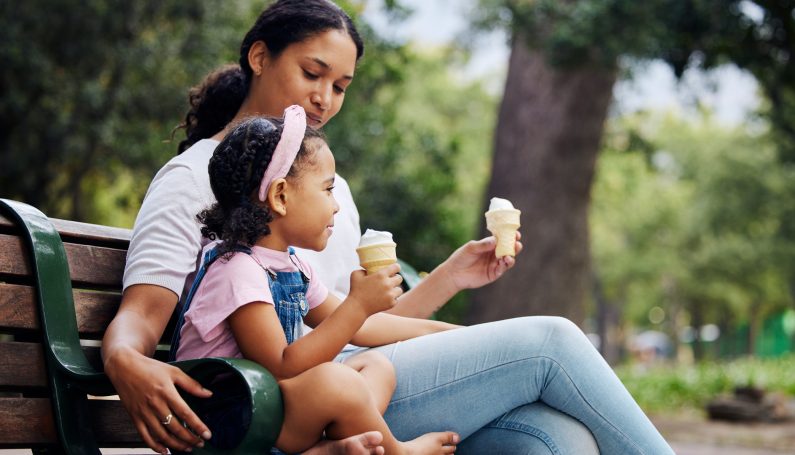When I was younger, I thought of surrendering as a negative thing. Giving up. Quitting. But somewhere along the way I came to a different understanding. At this stage of my life — as a middle-aged widowed mom with a young child — surrendering is being in a place of acceptance and not defeat. Beauty and grace can be found in the surrendering.
Years ago, I expressed to a mentor how frustrated I was about being sick — again. This was pre-motherhood, but I was overextending myself by working long days and evenings at both a school and my full-time therapy practice. I felt like I could never get healthy. My cup was empty.
Then my mentor said, “Sometimes you just need to surrender.” I needed to accept that I was probably getting sick — repeatedly — because I was pushing against it rather than surrendering and letting myself rest, recover, and explore making changes in my life. I needed a pause.
This stayed with me and has given me so much guidance, not only in my professional life but especially now as a mom and widow.
In the early days of my son’s life, I struggled to breastfeed. I remember sitting on the couch, cradling him, unsure of the day or time, covered in milk, sweat, and both of our tears. I felt like I had not moved or showered in days. It was relentless. I sobbed to my husband. I felt like I was no longer a person and that my body was no longer mine.
I was in a place of, “This will never stop” and “I will never be me again” and “I will never eat or sleep again.” Never, never, never. My husband, in his loving way, sat with me, listened, and helped create a plan. I felt heard and taken care of. I felt myself shifting as I began to surrender to this new part of my life.
Only then could I move to a place of acceptance and self-compassion. At that moment I could see that I was a new mom having some new mom feelings of pure overwhelm and exhaustion. I could accept that this was a moment and not forever.
Every day, we moms make so many choices in how we parent: Is this the moment to address a behavior? Is this a moment to ignore? Do I stick with this plan or is it time to let go and pivot? Am I responding to my kiddo in the way he needs, or am I stuck in more rigid thinking about what I “should” do? Do I listen to others or trust myself?
It can be so overwhelming. Every day will bring challenging moments, but I can be in a place of surrendering to that. I can trust myself to do the best I can with whatever comes my way.
When my husband died, I decided to surrender to the grief. I did not fight against it. Instead, I allowed myself to emotionally go where I needed. I did not hide my grief or pretend life was OK. I was not OK.
In my early days of grieving I felt I was having an out-of-body experience, floating in another dimension while the world kept going. I was faced with overwhelming decisions while being crushed by grief, trying to wrap my head around a life without my husband. And yet, surrendering to the grief helped me to identify the places where my energy was needed and not needed.
I surrendered and accepted that I was not the same person and mother I was in “the before.” I had to accept that I cannot know what the future holds for my family.
Maybe you’re wondering where to begin in this new and sometimes difficult effort of surrendering? Here are some of my focuses:
- I surrender and accept that even if I do not know what today brings, I trust that I can handle whatever comes my way.
- I surrender and accept that I have no control over my child’s emotions, but I can be present with him.
- I surrender and accept that I am going to mess up sometimes — and it will be OK.
- I surrender and accept that in this phase of life, my professional life is different than it once was.
- I surrender and accept that my parenting life is different as a widow with a child.
- I surrender and accept that I cannot do it all on my own — and I am not a failure for asking for help.
- I surrender and accept that grief and joy can co-exist.
As mothers, surrendering and finding a path to acceptance happens over and over — sometimes daily. We pause, extend some self-compassion, and begin again.
















